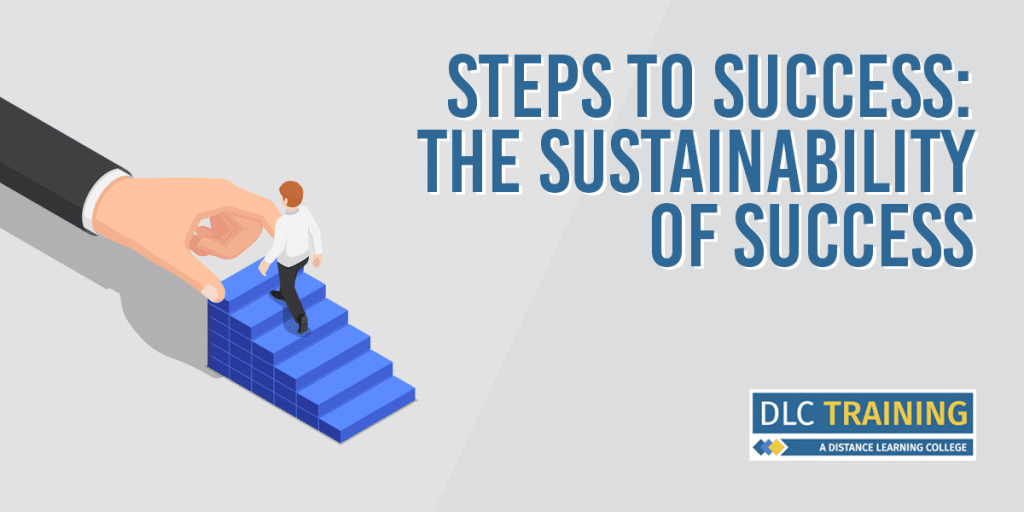It’s easy to think that most of the hard work is done once you achieve something you have been working towards. But in many cases, the challenge of maintaining the success you’ve achieved is often just as difficult.

In the first two parts of our steps to success series, we looked at how to define success and how small habits can lead to big results, in the third instalment we’re examining the best practices to build and sustain your successes.
The Need for Sustainability
Perhaps the most obvious example of something that is as much work to maintain as it is to achieve is fitness and weight loss.
It takes dedication and a range of changes to lose weight or to run a marathon. They also (mostly) can’t be rushed or forced through, like most things that are worthwhile in achieving, they take time and work.
Healthier choices need to be made on a daily basis, and exercise needs to be planned and has to take priority. And eventually, after time and effort, you will achieve your goals.
This leads us to the idea that slow progress is good progress, and that lasting change relies on building a solid foundation.
Studies show that the faster weight is lost, the faster it is gained back, as extreme dieting isn’t sustainable in the long run and our bodies often compensate relatively quickly.
This same principle applies to a range of achievements, from business to more personal successes. Building towards them takes a lot of work, but keeping and sustaining it takes almost as much time, effort, and commitment.
Optimising for Sustainability
Sustainability primarily comes down to optimisation. Your time, skills and abilities need to be geared towards what you aim to achieve.
If you don’t have enough time, how can you make time? If you don’t have the required skills, how can you learn them? If you aren’t qualified, what will it take to gain that qualification?
Through this kind of work and optimisation, gaining and sustaining success will be that much easier.
Building Relationships:
Surrounding yourself with co-workers, friends, and family who can help you when you need it, or at the very least will be there to listen and support makes any project or goal easier to achieve and maintain.
Whether it is losing weight, finishing a course, achieving a qualification or applying for a new job having a support system with people who either have similar goals, have already achieved what you are aiming for, or are simply there to help you dramatically increases the chances of success.
With this in mind, a key to ensuring our success is sustainable is looking for help, guidance, and support wherever we can. Attaining a mentor can be an ideal way to achieve and sustain results, they can offer insights and guidance which will enable you to maintain your motivation.
Continuous Development
One of the best ways to maintain success and progress is to develop yourself and your skills regularly.
This might be something simple like listening to an informative podcast or staying up to date with the latest news and developments in your industry. Or it could also be something which takes more commitment, such as achieving a new qualification. The greater the commitment the higher likelihood of success.
Making sure you are keeping your skills and knowledge up to date and relevant makes sustaining your success that much easier, your professional development will form part of your career progression and success not only in the workplace, it will also impact your life outside of work through gaining promotion, greater job satisfaction and improved work/life balance.
Ultimately long-term sustainable success requires your commitment. Through optimising your time for success, building strong and helpful relationships and continually improving your knowledge and developing your skills, you can not only achieve success, you will also successfully sustain it